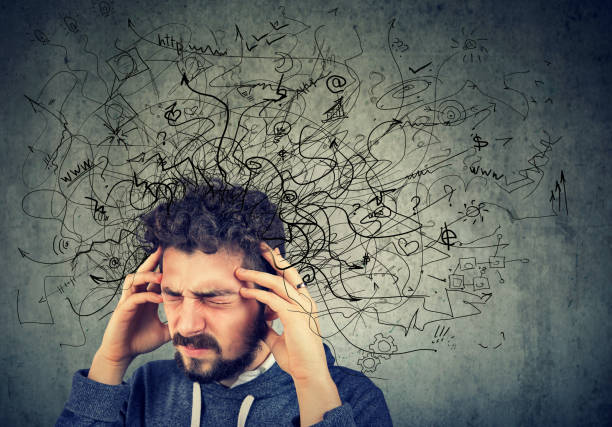Stress is not only exhausting, but also extremely unhealthy. In addition to relaxing exercises and behaviors, diet can also have a positive impact on your stress level. We tell you which 7 foods help against stress.
These 7 foods help fight stress
When we are under stress, our body is constantly on alert. This is not healthy in the long run and can, for example, lead to chronic inflammation and an increased risk of heart attack and stroke. Even our brain can be damaged under constant stress and our memory can be impaired, American brain researchers found out.
Diet has a major impact on our health. And it can also be used to successfully combat stress. These 7 foods help against stress:
1. Avocado
Yes, we can’t hear the name of the trend food anymore either. Nevertheless, the avocado has to be on this list because it is considered the superfood among anti-stress foods. Not only does it fuel our bodies and get our brains working at peak performance, but it also helps to reduce stress.
Avocados work against stress because they contain a lot of B vitamins, especially vitamin B1. Vitamin B1 is also known as thiamine, a substance that is essential for a functioning nervous system. Thiamine promotes the exchange of information in our brain and thus also the ability to concentrate. The vitamin also has a stress-relieving effect. It is not without reason that thiamine is also called the nerve vitamin.
Avocados are also rich in potassium, other B vitamins, magnesium and unsaturated fatty acids. However, they have a relatively poor eco-balance because their cultivation uses a lot of water. This leads to water shortages in the cultivation areas, which are also often at the other end of the world. You should always keep this in mind when buying avocados.
2. Nuts
Nuts are the perfect nerve food for on the go. The stress-relieving snack is high in vitamin B2 and vitamin E, especially walnuts, pistachios and hazelnuts. Here’s why pistachios are so healthy yet potentially dangerous.
The nuts also contain magnesium, which supports the energy metabolism. But the most important anti-stress ingredient in nuts is potassium. Both nutrients help to strengthen the immune system, but potassium is a real stress killer. Potassium is so effective against stress because it regulates the heartbeat and blood pressure and ensures a calmer pulse even under stress.
Among the nuts, the Brazil nut is way ahead when it comes to stress-relieving effects. This is because Brazil nuts have a relatively high selenium content. Selenium is particularly good against stress because it inhibits the transmission of impulses in the nerves and thus calms the nervous system. This automatically creates less stress in the body and you are calmer.
3. Spinach and other leafy green vegetables
It is a misconception that spinach has incredible amounts of iron. Although spinach is still a good source of iron, this has little to do with the myth of the miracle cure. Regular consumption of spinach won’t give you the strength of a bear like Popeye does, but it will give you iron-hard nerves.
The reason for this are the nutrients vitamin B6 and potassium contained in spinach, which protect the nervous system. The additional calcium it contains also contributes to good signal transmission between the nerve cells. The high magnesium content in spinach also promotes healthy functioning of the nervous system.
However, the most important anti-stress substance in spinach is folic acid, which leafy greens have in abundance. Folic acid is a B vitamin that helps the body produce mood-enhancing neurotransmitters like dopamine and serotonin in the brain. Spinach thus contributes to a better mood, which allows you to cope better with stressful situations. Tip: In order to retain as many of the nutrients as possible, you should only sauté the spinach briefly and not boil it.
4. Tea
The fact that tea is said to have a calming and stress-relieving effect is nothing new. The fact that this effect has now been scientifically confirmed is news. Researchers from University College London have shown in a study that people who drink tea are less stressed than people who have consumed a placebo drink.
One of the most well-known teas with a calming effect is chamomile tea. In various studies, the tea has now been attested to have a sleep-promoting effect. One of the best ways to combat stress is getting enough sleep, which makes chamomile tea a real anti-stress tea. Chamomile tea also has an anxiolytic effect, which can prevent stressful situations and help you cope better with stress.
Green tea also has an anti-stress effect: the high content of the amino acid L-theanine supports the formation of alpha waves in the brain, which leads to a feeling of relaxation. But: Green tea contains caffeine, so it is not necessarily recommended at any time of the day.
5. Dark Chocolate
Cocoa or dark chocolate is a real stress killer. Dark chocolate contains a lot of magnesium, which has a stress-relieving effect. It also contains the amino acid tryptophan, which is essential for the formation of the happiness hormone serotonin – but the mood-enhancing effect of chocolate is well known.
Dark chocolate also contains flavanoid, an antioxidant that breaks down stress hormones and lowers blood pressure. The rule here is: the darker the chocolate, the more flavanoids it contains. You should therefore always choose chocolate with a minimum of 70 percent cocoa content, for example the Lindt Excellence with 90 percent cocoa content*.
Another ingredient in dark chocolate that helps reduce stress is anandamide. Anandamide is an unsaturated fatty acid that binds to the same brain receptors as cannabis. Important: Only dark chocolate has the stress-relieving effects.
6. Berries
Berries – the local superfoods. Berries are true wonder weapons, also against stress. On the one hand they are rich in vitamin C, on the other hand berries have a very high anthocyanin content. Anthocyanin is an antioxidant that gives many berries their dark color. The antioxidant produces the mood-enhancing dopamine in the brain and thus prevents symptoms of stress.
All berries contain these substances, but some in particularly favorable amounts. Blueberries, strawberries and raspberries help particularly well against stress. Goji berries are said to be best at helping with stress, according to a study in the Journal of Alternative and Complementary Medicine.
Berries are not only easy to portion, they can also be wonderfully processed into ice cream. Simply put frozen berries and some milk (vegetable or animal), possibly some sugar, in the blender and you’re done.
7. Coffee
Who drinks too much coffee is nervous and stressed? none. Coffee can even help against stress attacks. The reason for this is the caffeine, which docks onto the adenosine receptors in the brain and blocks them. Adenosine is the body’s own sedative. Not only that, but it is also partly responsible for the development of stress symptoms.















